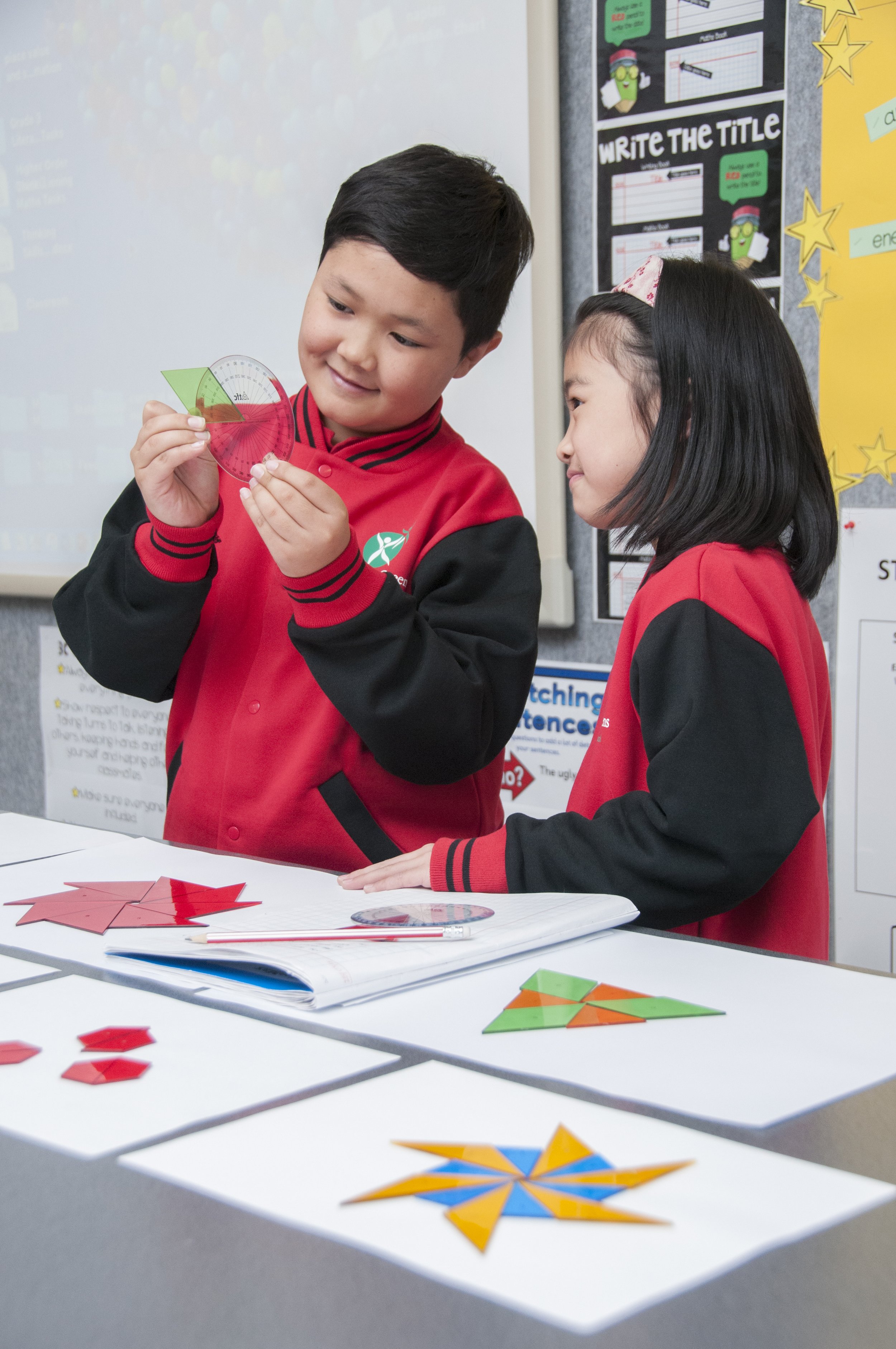
Numeracy
Mathematics at Lyndale Greens Primary School is a positive, engaging and hands on experience, in which our students develop confidence and a sense of achievement from what they learn. Lessons are tailored to the students’ needs and are differentiated to allow for extra support or more challenging learning.
Mathematics influences everyday personal, study and work situations. Learning mathematics involves building upon previous mathematical skills and understandings, making connections between mathematical ideas and generalising to form new ideas. Mathematical learning experiences provide an opportunity for students to develop their skills and understandings and apply these to other subjects as well as to everyday life situations.
Mathematical ideas evolve constantly and digital technologies are helping students to learn in new and exciting ways. At Lyndale Greens Primary School we regularly review the way we teach Mathematics and how we support our students, including with the use of digital technologies to enhance their learning. We have 1 to 1 devices in years 4-6 and excellent access to digital technology resources across the school. Students use these to support the development of mathematical understandings using programs like Excel or Mathletics, where differentiated activities can be set and through activities like learning to code.
Students are also provided with opportunities to experience success as mathematicians through a variety of activities including skills development, solving real life problems, experimenting with open ended questions and participating in mathematical games. We have extension programs such as Maths Olympiad, App Design and Robotics where children can challenge themselves to build their mathematical skills, ingenuity and creativity with solving problems. Consistent with the Victorian Curriculum and Assessment Authority, our comprehensive Numeracy program at Lyndale Greens Primary School incorporates explicit learning experiences that assist students to develop skills in the three strands: Number and Algebra, Measurement and Geometry, and Statistics and Probability.
The four proficiencies of Understanding, Fluency, Problem Solving and Reasoning are fundamental to learning mathematics and working mathematically, and are applied across all three strands.
For more information on the Strands and Proficiencies please see the VCAA website which can be accessed by clicking here.
Teachers collaboratively plan to enhance all students’ learning each term using the VCAA domains, the Lyndale Greens Instructional Framework and current research on best practice including High Impact Teaching Strategies. Class teachers plan with a consultant from Top Ten Maths and with members of the school leadership team to ensure all students experience success that meets their individual learning needs.
Daily 90 minute Numeracy programs provide all students with the opportunity to access mathematical experiences in order to:
develop an understanding of the role mathematics plays in the functioning of our society.
develop positive attitudes towards mathematics.
develop mathematical connections and be able to apply mathematical concepts, skills and processes in posing and solving mathematical problems.
develop confidence in their personal knowledge of mathematics, be confident to apply knowledge, build upon prior knowledge and be able to acquire new knowledge and skills
learn to communicate mathematically.
access appropriate materials to support the development of their mathematical understandings.
develop thinking skills directed towards explaining, understanding and using mathematical concepts, structures and materials.
use technology as a tool to develop and create mathematical skills and understandings.
At Lyndale Greens Primary School we make Maths practical and engaging, where students have an opportunity to learn using a range of learning strategies. Mathematics is also linked to other areas of the curriculum and to the students' everyday lives. Mathematic concepts are explicitly taught alongside children being actively engaged in their own hands on investigations to develop their deep level of understandings in Mathematics.
Numeracy in action
The lesson begins with an activity that involves the whole class, it may be a counting activity, a tuning-in activity, a Maths game, or a short problem to solve.
The main part of the session is generally a whole class open ended investigation where students attempt a task that may have a variety of possible answers. These investigations allow students to work at their own point of need. The teacher will be working with the class to model and discuss a Mathematical concept or skill and encourages students to work with concrete materials, drawing pictures or using abstract mathematics to represent their understandings. Students are also encouraged to take risks, ask questions and test ideas. These strategies are used to practise skills, reinforce students’ knowledge or to investigate something further.
A key to Mathematics teaching at Lyndale Greens is that we follow students’ developmental sequence of learning. We encourage students to question and give the students opportunities for paired and group discussions and the sharing of alternative strategies. This helps the students to make connections and build their knowledge of how Mathematics is important to their everyday lives. Feedback is provided throughout the lesson to build on students’ understandings. Towards the end of the session students have time to reflect on their learning, share their findings, make conclusions and celebrate their learning.
